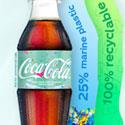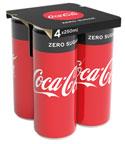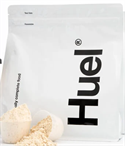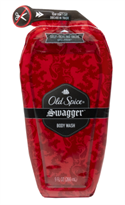CORPORATE ACTION
Plastic Reduction Is Easier Said Than Done
CPG companies are trying to deal with the consumer sentiment over single-use plastic by using less packaging, increasing the use of recycled plastic, or moving to more sustainable options, such as refills or alternative materials.
Unilever highlights the need to cut down its plastic use as the area that requires the most innovation. For example, removing individual wrappers in select packs of Solero ice pops, replaced by cardboard box with a polyethylene cover, allowed it to cut those products’ use of plastic by 35%, but even the company says such efforts are “all very niche”, and that the “daunting challenge” is to scale these efforts.
The Loop service being run by TerraCycle, in partnership with a number of major CPG brands, is another attempt to address the issue, but customer numbers remain relatively small and analysts believe only the wealthy will use it.
Refillable packaging options are still rare, partly because of logistical challenges. A study by the Ellen MacArthur Foundation found just 3% of packaging from 139 companies was designed for reuse. PepsiCo’s CSO, Simon Lowden, says consumers will change behaviors when they see material progress on cost and convenience, but past trials of refill options have tended to fail. A decade ago, U.K. supermarket chain, Asda, offered fabric conditioner in refillable pouches, but shoppers tended not to refill the pouches in the store, and there were spillage issues.
Using paper packaging instead of plastic has also encountered resilience problems, and plastic manufacturers claim it also needs more water and energy to produce.
Unilever highlights the need to cut down its plastic use as the area that requires the most innovation. For example, removing individual wrappers in select packs of Solero ice pops, replaced by cardboard box with a polyethylene cover, allowed it to cut those products’ use of plastic by 35%, but even the company says such efforts are “all very niche”, and that the “daunting challenge” is to scale these efforts.
The Loop service being run by TerraCycle, in partnership with a number of major CPG brands, is another attempt to address the issue, but customer numbers remain relatively small and analysts believe only the wealthy will use it.
Refillable packaging options are still rare, partly because of logistical challenges. A study by the Ellen MacArthur Foundation found just 3% of packaging from 139 companies was designed for reuse. PepsiCo’s CSO, Simon Lowden, says consumers will change behaviors when they see material progress on cost and convenience, but past trials of refill options have tended to fail. A decade ago, U.K. supermarket chain, Asda, offered fabric conditioner in refillable pouches, but shoppers tended not to refill the pouches in the store, and there were spillage issues.
Using paper packaging instead of plastic has also encountered resilience problems, and plastic manufacturers claim it also needs more water and energy to produce.
CORPORATE ACTION: Coca-Cola
Sweden Will Be First Coca-Cola Market To Adopt Fully Recycled Plastic Bottles
 Coca-Cola and Coca-Cola European Partners (CCEP) announced that Sweden will be the first market where all Coke products will be packaged in fully recycled plastic bottles. The transition beginning in the first quarter of 2020, will cut the use of new plastic by 3,500 tons annually. Plastic packaging for 40 types of products, including Sprite and Bonaqua, will consist entirely of recycled material next year, except for caps and labels. Coca-Cola was recently named the top global plastic polluter in a worldwide audit of 476,000 pieces of waste organized by Greenpeace. In Western Europe, however, Coke is two years ahead of schedule to reach a goal that at least 50 percent of its plastic packaging to consist of recycled material by 2025.[Image Credit: © Coca-Cola European Partners.]
Coca-Cola and Coca-Cola European Partners (CCEP) announced that Sweden will be the first market where all Coke products will be packaged in fully recycled plastic bottles. The transition beginning in the first quarter of 2020, will cut the use of new plastic by 3,500 tons annually. Plastic packaging for 40 types of products, including Sprite and Bonaqua, will consist entirely of recycled material next year, except for caps and labels. Coca-Cola was recently named the top global plastic polluter in a worldwide audit of 476,000 pieces of waste organized by Greenpeace. In Western Europe, however, Coke is two years ahead of schedule to reach a goal that at least 50 percent of its plastic packaging to consist of recycled material by 2025.[Image Credit: © Coca-Cola European Partners.]
CORPORATE ACTION: L’Oréal
L’Oréal Set To Launch A Vegetable Fiber Bottle in 2021
.png&width=125&height=189)
Global beauty products company, L’Oréal, is to launch a vegetable fiber-based bottle, working with paper packaging company BillerudKorsnäs. L’Oréal also stated pride in its membership of Paboco (The Paper Bottle Company), founded by BillerudKorsnäs and another packaging company, Alpla. Denmark-based Paboco developed the vegetable fiber alternative to plastic packaging. L’Oréal says its aim is to create recyclable and bio-sourced packaging, but still able to meet the exacting standards and customer experience expected of the plastic version. The first commercial outing for the bottle is expected from the La Roche-Posay and Kiehl’s brands in 2021.
[Image Credit: © L'Oréal]
CORPORATE ACTION: Procter & Gamble
P&G In Europe Plans To Make 300 Million Bottles From Recycled Plastic
 P&G announced that its Fairy, Flash and Viakal brands will increase recycled plastic use to 9,000 tonnes per year, starting in 2020. This move is part of the company’s commitment to reducing the amount of virgin plastic in all packaging by 50% by 2030.
P&G announced that its Fairy, Flash and Viakal brands will increase recycled plastic use to 9,000 tonnes per year, starting in 2020. This move is part of the company’s commitment to reducing the amount of virgin plastic in all packaging by 50% by 2030.In a press release, P&G put more emphasis on product formula changes, pointing out that a life cycle assessment found that the biggest “footprint reduction opportunity” for its home care cleaning products came when consumers used its products, which involved high use of water, often heated. Consequently, it has created formulas that wash dishes and clothes at low temperatures.
[Image Credit: © Procter & Gamble]
CORPORATE ACTION: Unilever
Dove To Be Sold In 100% Recycled Plastic Bottles By Year End
 Dove said it will be the biggest brand in the world that has moved to 100% recycled packaging. Its actions include making its packing for single packs of its tablet soap plastic-free and moving to 100% recycled plastic bottles, where technically feasible, in North America and Europe by the end of 2019. All three of its ranges will be impacted: Dove, Dove Men+Care and Baby Dove. Unilever estimates the moves will reduce more than 20,500 tonnes of virgin plastic from its portfolio per year.[Image Credit: © Unilever]
Dove said it will be the biggest brand in the world that has moved to 100% recycled packaging. Its actions include making its packing for single packs of its tablet soap plastic-free and moving to 100% recycled plastic bottles, where technically feasible, in North America and Europe by the end of 2019. All three of its ranges will be impacted: Dove, Dove Men+Care and Baby Dove. Unilever estimates the moves will reduce more than 20,500 tonnes of virgin plastic from its portfolio per year.[Image Credit: © Unilever]
CORPORATE ACTION: Other
Flipkart Pilot Seeks To Put Consumers At the Heart of Plastic Recycling By Raising Awareness
[Image Credit: © Flipkart]
PACKAGING REDESIGNS
Coca-Cola Adopts New Multipack Packaging Technology In Europe
 Coca-Cola and bottling partners Coca‑Cola HBC and Coca‑Cola European Partners announced they will begin to introduce a new multipack can packaging solution called KeelClip across Europe. The sustainability and merchandising benefits of KeelClip include complete coverage of can tops to keep them clean, finger holes to allow for easy carrying, and minimization of the amount of paper required. In response to the development, Coca-Cola HBC will invest $16.6 million into the packaging solution and will remove shrink wrap from all of its can multipacks in all European Union markets by the end of 2021, saving 2,000 tons of plastic and 3,000 tons of CO2 annually. Coca-Cola HBC plans to introduce KeelClip to its products early next year beginning in Ireland and Poland, then in Austria, Italy, Switzerland, and Romania in 2020. The new packaging will be used on all can multipacks of up to eight cans; larger can multipacks will be bound by a carton pack.[Image Credit: © Coca-Cola Hellenic Bottling Company]
Coca-Cola and bottling partners Coca‑Cola HBC and Coca‑Cola European Partners announced they will begin to introduce a new multipack can packaging solution called KeelClip across Europe. The sustainability and merchandising benefits of KeelClip include complete coverage of can tops to keep them clean, finger holes to allow for easy carrying, and minimization of the amount of paper required. In response to the development, Coca-Cola HBC will invest $16.6 million into the packaging solution and will remove shrink wrap from all of its can multipacks in all European Union markets by the end of 2021, saving 2,000 tons of plastic and 3,000 tons of CO2 annually. Coca-Cola HBC plans to introduce KeelClip to its products early next year beginning in Ireland and Poland, then in Austria, Italy, Switzerland, and Romania in 2020. The new packaging will be used on all can multipacks of up to eight cans; larger can multipacks will be bound by a carton pack.[Image Credit: © Coca-Cola Hellenic Bottling Company]
France To Ban Single-Use Plastic For On-Site Consumption In Catering And Fast Food Outlets
The French Parliament has adopted an amendment that bans single-use plastics by January 1, 2023 in the commercial catering and fast food sectors. Take-aways can be sold in single-use packaging, but all on-site consumption must be served in reusable containers.
Coca-Cola Switches To Clear Bottles For Sprite in South East Asia
Huel Has Yet To Develop A Suitable Recyclable Or Biodegradable Pouch For Its “Human Fuel”

Huel, the meal-replacement maker, has deliberately chosen to make the pouch in which the “human fuel” is sold non-recyclable, and says replacing the foil-lined pouch with biodegradable packaging would create even more waste. Founder Julian Hearn said Huel has tested a biodegradable option, but it’s not as strong and would split as it passes along the supply chain. It has also tested a recyclable pouch with a UV liner, but Hearn says more tests are required.
[Image Credit: © Huel]
POLICY, REGULATION & LEGAL
Congressional Plastics Task Force Aims To Boost Plastic Abatement Solutions
A bipartisan group of four members of Congress established the Congressional Plastics Solutions Task Force to boost plastics recycling.
Concerned about the growing volume of plastic that is produced but not recycled, Rep. Haley Stevens, D-Mich pointed to a range of promising solutions that need greater support.
At this point, the task force looks to be focused on promoting awareness and solutions rather than pushing for legislative changes. It will bring together state and local lawmakers and industry representatives to facilitate investment in recycling technologies and promote education on plastics generation and recovery.
Concerned about the growing volume of plastic that is produced but not recycled, Rep. Haley Stevens, D-Mich pointed to a range of promising solutions that need greater support.
At this point, the task force looks to be focused on promoting awareness and solutions rather than pushing for legislative changes. It will bring together state and local lawmakers and industry representatives to facilitate investment in recycling technologies and promote education on plastics generation and recovery.
INNOVATION & TECHNOLOGY
Scientists Manage To Upcycle Polyethylene Into High-Quality Liquid Products
.jpg&width=125&height=83) A group of scientists has upcycled polyethylene into high quality liquid plastics, raising the prospect of plastics that are more sustainable. The scientists from a number of US universities and institutions succeeded in catalytically transforming by hydrogenolysis energy-rich polyethylene macromolecules into value-added products that could be re-purposed for motor oils, lubricants, detergents and even cosmetics.
A group of scientists has upcycled polyethylene into high quality liquid plastics, raising the prospect of plastics that are more sustainable. The scientists from a number of US universities and institutions succeeded in catalytically transforming by hydrogenolysis energy-rich polyethylene macromolecules into value-added products that could be re-purposed for motor oils, lubricants, detergents and even cosmetics.The authors of the study point out that plastics have many advantages – being strong, inexpensive and sterile – that are hard to replicate. Currently 380 million tons of plastics are produced worldwide each year (about 7% of crude oil and natural gas produced) and the plastic market is projected to quadruple by 2050 to ~1100-1500 million tons per year. With over 75% of plastics discarded after a single-use, the potential for an upcycling process is enormous.
While this study was limited to laboratory conditions, it formed the basis of two patent applications (US Patent Applications 62/796,482 and 62/892,347).
[Image Credit: © stux from Pixabay]
AeroFlexx Aims To Commercialize P&G’s ‘Revolutionary’ Plastic Packaging
 P&G is commercializing a new form of flexible-yet-rigid plastic packaging, AeroFlexx, which uses at least 50% less plastic and is claimed to enhance the consumer experience and ship more easily. AeroFlexx describes its product as a “revolutionary liquid-packaging solution.”
P&G is commercializing a new form of flexible-yet-rigid plastic packaging, AeroFlexx, which uses at least 50% less plastic and is claimed to enhance the consumer experience and ship more easily. AeroFlexx describes its product as a “revolutionary liquid-packaging solution.”The launch follows five years of R&D and consumer testing by P&G. Rather than keep the technology in-house, P&G is commercializing it through AeroFlexx, a company established with the help of Innventure, a venture company in which P&G was the initial partner investor.
AeroFlexx is currently being piloted by some P&G brands, including Old Spice body wash for men, Olay body wash for women and Dawn liquid dish soap. Beyond P&G, it is being tested by Mighty Mutt dog shampoo by Denver-based Blue Zebra Brands.
P&G has previously used a similar approach to commercialize its intellectual property. The company worked with Innventure to launch PureCycle Technologies in an effort to commercialize P&G’s IP involving a polypropylene plastic recycling process.[Image Credit: © AreoFlexx]
Making Money: Recyclops Uses Technology To Create A Smart Collections Business
The company charges a one-time $10 set up fee and $10/month for twice monthly pickup. It also requires customers to use its 13-Gallon Drawstring Recyclable Bags ($10 a year).
It is “rapidly expanding” operations across Utah, Texas, Idaho, Oklahoma & Arizona and its website lists about 20 pre-launch locations.
[Image Credit: © Recyclops]
Jose Cuervo Tradicional® To Launch Bio- Based Straws As Part Of its ‘Agave Project’

The company that pioneered 100% agave tequila, Jose Cuervo Tradicional®, has launched ‘The Agave Project’, which seeks to introduce new agave-based products, starting with biodegradable straws from upcycled agave fibers in a bio-based composite. They will be rolled out next year in bars and other outlets in the US and Mexico. The company claims they will fully biodegrade in landfill within five years, and the agave-based composite, PolyAgave PPT4, is FDA approved.
[Image Credit: © Tequila Cuervo La Rojeña, S.A. de C.V.]
Plastic Chemical Recycling, A Hope Too Far?
Many large plastics users are counting on chemical recycling of plastic even though the technology is far from commercially viable.
Mechanical recycling is well-established. Captured plastic is shredded, washed and melted for reuse. But during the process its quality deteriorates and after a few uses the plastic must be disposed of by burning or dumping. It can help companies use less virgin plastic but it will never make them fully sustainable. Moreover, only some plastics can currently be recycled this way.
Chemical recycling, however, would allow a fully circular system, with all plastics returned to an as-new condition. The technology to do this has been around for decades but it is costly and not-proven at scale. Considerable effort is going into developing it.
For example, Ioniqa uses a process that submerges PET in a solution to dissolve the plastic into its constituent molecules and opened a plant this summer. It counts Coca-Cola and Unilever amongst its investors. Loop Industries, a Canadian startup, also uses technology to reverse-engineer PET plastic to its constituent parts and has contracts with Danone and PepsiCo. And next year BP plans to open a $25 million pilot plant in Illinois to test its technology.
Beyond its uncertain path to commercial viability, questions remain about its environmental impact and daunting energy requirements. But in spite of these doubts, companies are relying on a solution. In a WSJ article, Scott Pearson, Coca-Cola’s head of R&D engineering said “We need it 100% to work. Mechanical recycling isn’t going to get us there by itself.”
Mechanical recycling is well-established. Captured plastic is shredded, washed and melted for reuse. But during the process its quality deteriorates and after a few uses the plastic must be disposed of by burning or dumping. It can help companies use less virgin plastic but it will never make them fully sustainable. Moreover, only some plastics can currently be recycled this way.
Chemical recycling, however, would allow a fully circular system, with all plastics returned to an as-new condition. The technology to do this has been around for decades but it is costly and not-proven at scale. Considerable effort is going into developing it.
For example, Ioniqa uses a process that submerges PET in a solution to dissolve the plastic into its constituent molecules and opened a plant this summer. It counts Coca-Cola and Unilever amongst its investors. Loop Industries, a Canadian startup, also uses technology to reverse-engineer PET plastic to its constituent parts and has contracts with Danone and PepsiCo. And next year BP plans to open a $25 million pilot plant in Illinois to test its technology.
Beyond its uncertain path to commercial viability, questions remain about its environmental impact and daunting energy requirements. But in spite of these doubts, companies are relying on a solution. In a WSJ article, Scott Pearson, Coca-Cola’s head of R&D engineering said “We need it 100% to work. Mechanical recycling isn’t going to get us there by itself.”
Copyright 2026 Business360, Inc.

